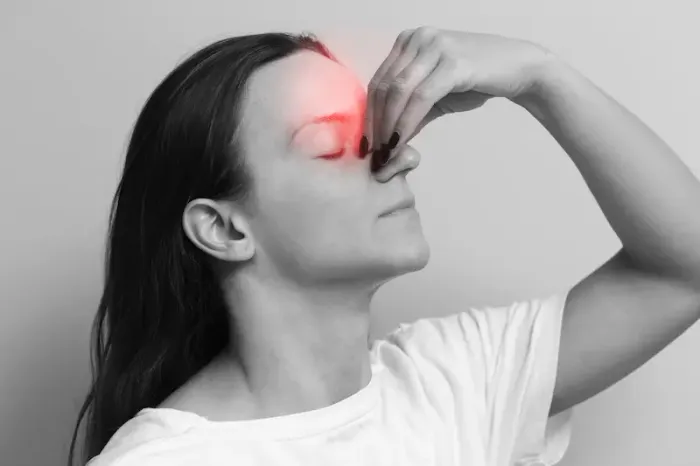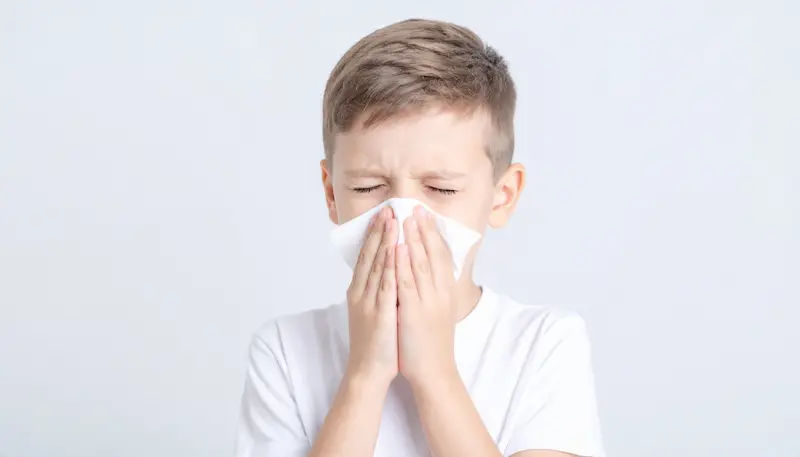Sinusitis: Symptoms, Causes and Information
Know about sinusitis, what it is, causes, symptoms, how it affects the health, how to manage it and prevent it and more.

Written by Dr. Siri Nallapu
Reviewed by Dr. D Bhanu Prakash MBBS, AFIH, Advanced certificate in critical care medicine, Fellowship in critical care medicine
Last updated on 13th Jan, 2026

Introduction
Sinusitis is a common condition that affects millions of people worldwide. If you’ve ever experienced a stuffy nose, facial pain, or pressure around your eyes and forehead, you may have had sinusitis. While it can be uncomfortable, understanding the condition can help you manage it better.
What is Sinusitis?
Sinusitis, also known as a sinus infection, occurs when the tissues lining your sinuses become inflamed or swollen. The sinuses are air-filled cavities located behind your forehead, cheeks, and eyes. When they get blocked and filled with fluid, germs can grow, leading to an infection.
Sinusitis can be:
• Acute – Lasts for a short time (usually less than 4 weeks).
• Subacute – Lasts 4 to 12 weeks.
• Chronic – Persists for more than 12 weeks despite treatment.
• Recurrent – Happens several times a year.
Consult General Practitioner for Personalised Advice
Common Symptoms of Sinusitis
The symptoms of sinusitis can vary depending on whether it’s acute or chronic. Some common signs include:
• Nasal congestion (stuffy nose)
• Thick, discoloured nasal discharge (yellow or green mucus)
• Facial pain or pressure (especially around the cheeks, eyes, or forehead)
• Reduced sense of smell and taste
• Headache
• Cough (often worse at night)
• Fatigue
• Bad breath
• Fever (more common in acute sinusitis)
If symptoms last longer than 10 days or worsen after initial improvement, it’s best to consult a doctor.
What Causes Sinusitis?
Sinusitis can be triggered by several factors, including:
1. Viral Infections – Most cases start with a common cold or flu.
2. Bacterial Infections – If a cold persists, bacteria can grow in the blocked sinuses.
3. Allergies – Pollen, dust, or pet dander can cause inflammation.
4. Nasal Polyps – Small growths in the nasal passages can block sinuses.
5. Deviated Septum – A crooked nasal septum can restrict airflow.
6. Environmental Irritants – Smoke, pollution, or strong chemicals can irritate the sinuses.
7. Weakened Immune System – Conditions like diabetes or HIV increase risk.
How Does Sinusitis Affect Health?
While most cases of sinusitis are mild and resolve on their own, chronic or severe sinusitis can lead to complications such as:
• Ear infections
• Asthma flare-ups
• Meningitis (rare but serious if infection spreads to the brain)
• Vision problems (if the infection affects the eye area)
If you experience severe headaches, high fever, swelling around the eyes, or confusion, seek medical help immediately.
Tips to Manage and Prevent Sinusitis
1. Home Remedies for Relief
• Stay Hydrated – Drink plenty of water to thin mucus.
• Use a Humidifier – Moist air helps reduce congestion.
• Nasal Saline Rinse – A neti pot or saline spray can clear nasal passages.
• Warm Compress – Applying warmth to the face eases pain.
• Elevate Your Head While Sleeping – Helps reduce nighttime congestion.
2. Over-the-Counter (OTC) Medications
• Decongestants – Help reduce swelling (use for short-term relief).
• Pain Relievers – Ibuprofen or acetaminophen can ease discomfort.
• Antihistamines – Useful if allergies are the cause.
3. Lifestyle Changes
• Avoid Smoking & Pollutants – They irritate the nasal passages.
• Manage Allergies – Keep windows closed during high pollen seasons.
• Wash Hands Frequently – Prevents viral infections.
4. When to See a Doctor?
• If symptoms persist beyond 10 days, worsen, or include high fever, severe headache, or vision changes, consult a healthcare provider. Chronic sinusitis may require antibiotics, nasal corticosteroids, or even surgery in rare cases.
When to Consider a Doctor’s Visit?
If home remedies aren’t helping, or if you experience:
• Severe headache or facial pain
• High fever (above 102°F or 39°C)
• Swelling around the eyes
• Confusion or neck stiffness
It’s important to seek medical advice.
Final Thoughts
Sinusitis can be uncomfortable, but with the right care, most people recover fully. Simple home remedies, OTC medications, and preventive steps can make a big difference. If symptoms persist, don’t hesitate to seek professional help.
Consult General Practitioner for Personalised Advice
Consult General Practitioner for Personalised Advice

Dr Syed Mateen Pasha
General Physician
2 Years • MBBS
Bengaluru
PRESTIGE SHANTHINIKETAN - SOCIETY CLINIC, Bengaluru

Dr. Vivek D
General Physician
4 Years • MBBS
Bengaluru
PRESTIGE SHANTHINIKETAN - SOCIETY CLINIC, Bengaluru

Dr. Syed Ismail Ali
General Practitioner
7 Years • MBBS
Hyderabad
Apollo 24|7 Clinic, Hyderabad

Dr. Madhuri Sai Sreepada
General Practitioner
9 Years • MBBS
Hyderabad
BRIGHT SMILES MEDICARE & DENTAL CARE, Hyderabad

Dr. Johnson. S
General Practitioner
7 Years • MBBS MD(Preventive and social Medicine)
Pune
Apollo Clinic, Nigdi, Pune
Consult General Practitioner for Personalised Advice

Dr Syed Mateen Pasha
General Physician
2 Years • MBBS
Bengaluru
PRESTIGE SHANTHINIKETAN - SOCIETY CLINIC, Bengaluru

Dr. Vivek D
General Physician
4 Years • MBBS
Bengaluru
PRESTIGE SHANTHINIKETAN - SOCIETY CLINIC, Bengaluru

Dr. Syed Ismail Ali
General Practitioner
7 Years • MBBS
Hyderabad
Apollo 24|7 Clinic, Hyderabad

Dr. Madhuri Sai Sreepada
General Practitioner
9 Years • MBBS
Hyderabad
BRIGHT SMILES MEDICARE & DENTAL CARE, Hyderabad

Dr. Johnson. S
General Practitioner
7 Years • MBBS MD(Preventive and social Medicine)
Pune
Apollo Clinic, Nigdi, Pune




